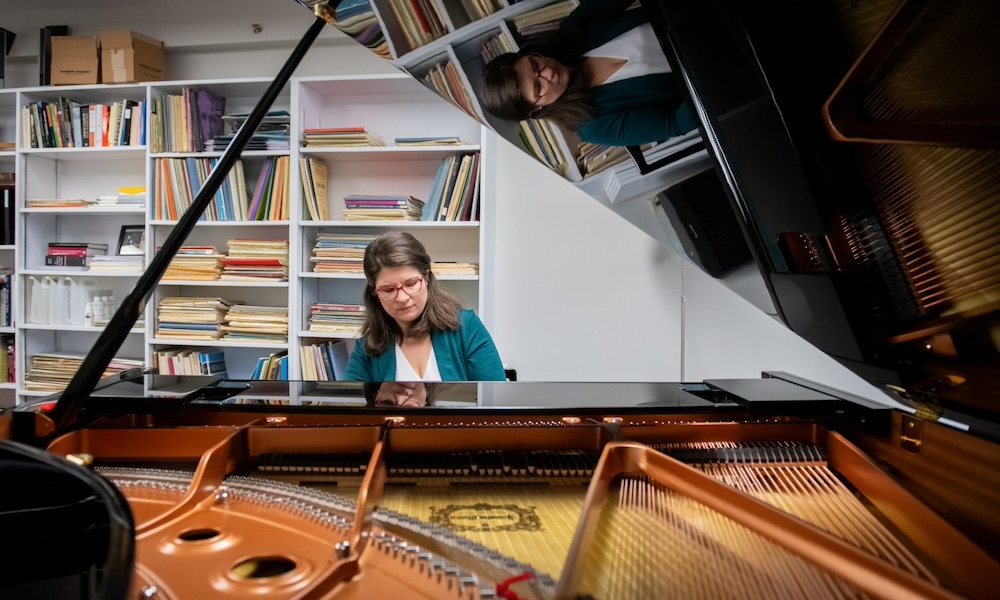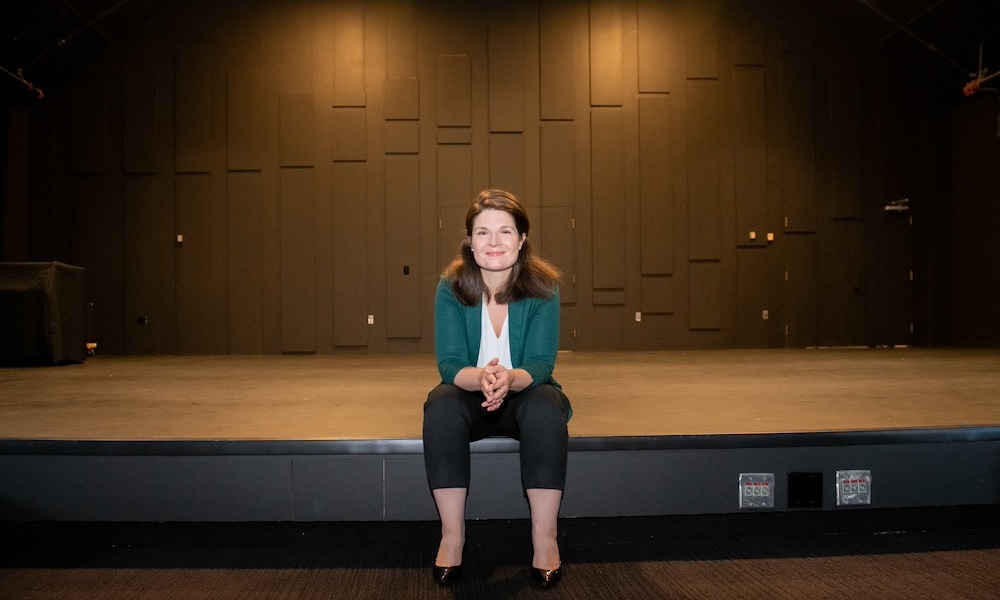"My work is endlessly fascinating, and I love it."
What brought you to UPEI? Why did you choose to teach here?
I grew up in rural northern Alberta. My university studies brought me to Lethbridge, Vancouver, and Montréal. Calgary was my home before joining the Music Department at UPEI in the fall of 2019.
I came across a posting for an eight-month term position in piano at UPEI in the spring of 2019 and was intrigued. I had been working as a sessional instructor in Southern Alberta and decided to return to university to complete doctoral studies with the goal of working in academia full-time. I was just wrapping up my doctoral work when I came across the opening at UPEI. It seems the timing was right—I’ve been teaching at UPEI since September 2019, joining the Music Department as the Assistant Professor of Piano on a full-time basis in 2022.

I completed my undergraduate studies at a small music department in southern Alberta (at the University of Lethbridge). This shaped my perspective on what creates a positive educational experience, and I see many similarities in the music program here at UPEI. Our students can be engaged in music, academically and on stage, in so many ways. Our degree pathways offer a strong curricular core while also providing flexibility, allowing students to tailor their studies to their individual interests. Students can take advantage of frequent performance opportunities, as soloists and as part of our ensembles. Many of our students also join community ensembles, giving them invaluable professional experience. Our class sizes allow music faculty to connect with students and to support them in building their unique career path whether that be in music, the arts in general, or another field.
What courses are you teaching currently?
I currently teach applied piano, working one on one with students, and collaborative piano, guiding students as they work with a musical partner and learn to be part of an ensemble. This type of teaching—working with students individually on a weekly basis over the course of four years—is unique in the university environment. It is such a privilege to be able to teach in this format, getting to know students as they discover who they are and gain confidence in themselves as artists. Teaching an instrument is multifaceted—one deals with the physical aspects of playing alongside the musical and artistic, developing an understanding of repertoire and breadth of styles, building professionalism on stage and off—all this adapted to the individual student. An awareness of all aspects of music—theory, harmony, history, and musicianship skills—provides the essential foundation, yet it is the ability to synthesize and integrate this material that fosters authentic development. My work is endlessly fascinating, and I love it.
What kinds of research are you involved in, and what is your area of expertise?
As a performing artist, my research is diverse and includes frequent performances as soloist and collaborator. I’ve just returned from performing at the Festival of the Sound, a renowned chamber music summer festival in Ontario; I’m looking forward to a number of solo piano recitals and guest masterclasses coming up throughout Atlantic Canada this Fall. I’m excited about an upcoming recording project that will weave together cornerstone classical repertoire, marginalized works, as well as newly commissioned music by Canadian composers.
"Teaching an instrument is multifaceted—one deals with the physical aspects of playing alongside the musical and artistic, developing an understanding of repertoire and breadth of styles, building professionalism on stage and off—all this adapted to the individual student."
As a listener I appreciate a great variety of musical genres, however, in my own work and profession I am involved almost exclusively in classical music. While this may sound rather niche, it is a broad field, covering music created during the Renaissance period to current day works. Bringing music to life for audiences involves in-depth preparation and analysis beforehand, ultimately engaging and connecting all of us with an illuminating and meaningful experience.
What do you find unique and interesting about UPEI’s Music programs?
Our graduates speak highly of the welcoming and inclusive community we create within our department. Students become a close-knit cohort, progressing together through their core classes, rehearsing next to each other in ensembles, supporting one another in performances throughout their time in our program. Being a successful artist demands self-awareness, innovative thinking, and an eclectic skillset. While we are immensely proud of the musicians that graduate from our program, we are equally proud of the community-minded, thoughtful individuals who have chosen to make UPEI a part of their educational experience.

Our Music Education program is distinctive in that it prepares students to teach anywhere in Canada through a five-year integrated single-degree program. Students in both our BMus and BMusEd programs share many of the same courses, including four years of applied instrumental study and ensemble work, ensuring that our emerging K-12 Music Educators are well-rounded, successful leaders in the classroom.
What should prospective students know about UPEI?
Prince Edward Island is such a gem. UPEI offers an engaging educational experience in a beautiful environment. Along with its natural beauty, PEI’s cultural contributions are not to be overlooked—wonderful music, great theatre, superb food—these are all so accessible here.
